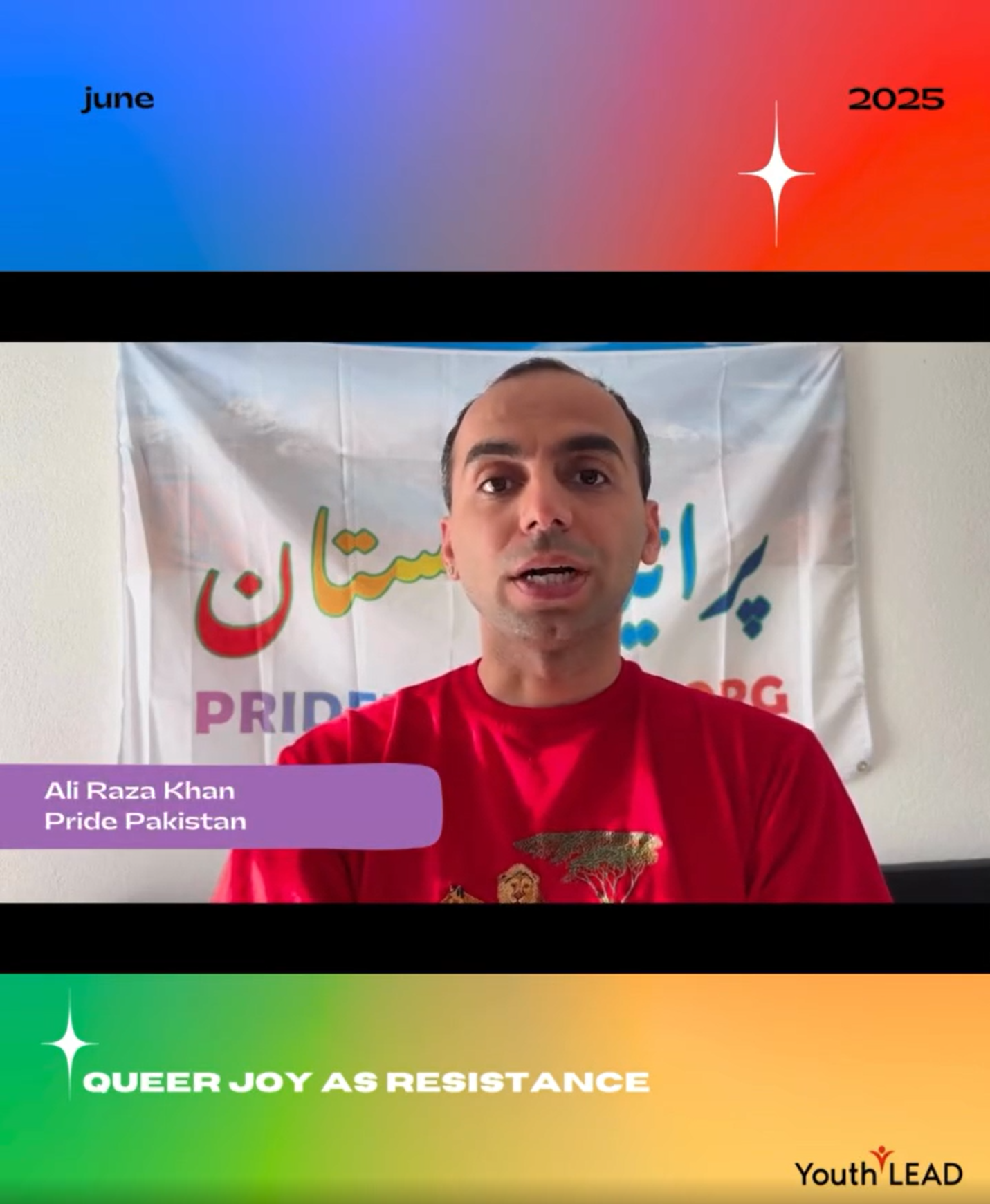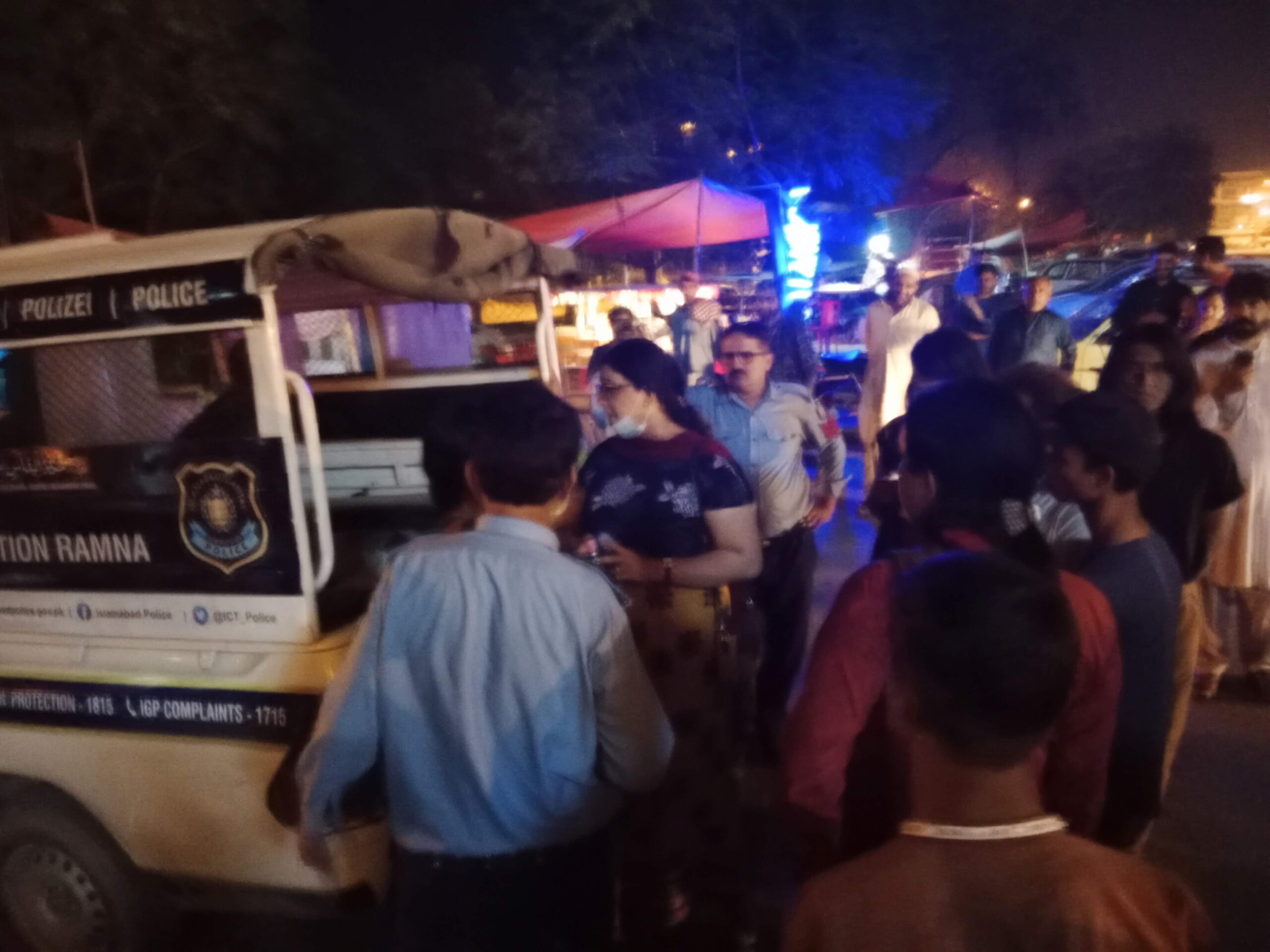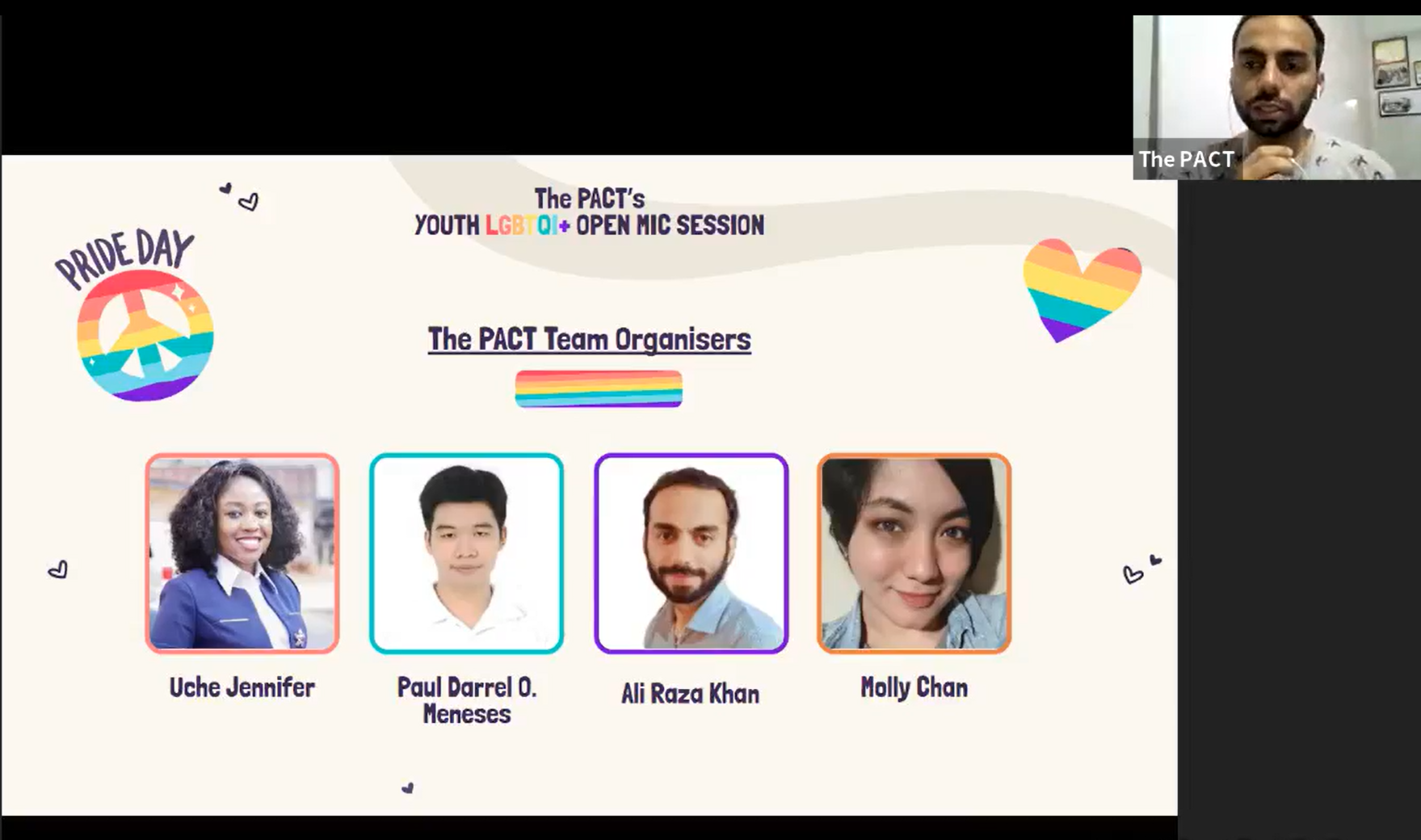Tag: Gay Pakistan
-

Laughter as Rebellion: My Pride 2025 Message on Queer Joy for Youth LEAD AP
Posted by Ali Raza Khan | June 5, 2025 Asalaam Alaikum and a very Happy Pride Month to all! This Pride Month, I was incredibly honoured to contribute a video message to the Asia Pacific Network of YKP (Youth LEAD AP) for their powerful series, “Queer Joy as Resistance.” As the founder of PridePakistan.org, a…
-

Living in Fear: The Struggles of LGBTQ+ Individuals in Pakistan
As an HIV-positive gay activist from Pakistan, my life has been a constant battle against societal norms and prejudices. My name is Ali Raza Khan, and I have faced numerous challenges simply for being who I am. Recently, I found myself in Islamabad, staying with my fellow colleague Nayab Ali, a transgender police officer and…
-

Pride in the Post-Pandemic World: A Youth LGBTQI+ Open Mic Session by The Youth PACT Organisation
On June 18th, 2022, TheYouthPACT.org hosted an impactful “Youth LGBTQI+ Open Mic Session” titled “Pride in the Post-Pandemic World.” As a volunteer coordinator for the advocacy working group at TheYouthPACT.org, I, Ali Raza Khan from Pakistan, had the privilege of co-hosting this session alongside Paul Darrel Omenesis from the Philippines. The session commenced with an…
